Is organic sugar safe to feed hummingbirds? The internet says “NO” but science has a different opinion. Get the facts and take a deep dive into the report that this urban myth is based on. Let’s agree that what is best for hummingbirds should dictate our choice.
Is organic white sugar safe to feed to hummingbirds?
I’ve had a lot of comments about my recommendation to use organic sugar in my healthy hummingbird recipe. There are a lot of urban myths that are dictating that people choose exclusively non-organic refined white sugar because of the supposed danger to wild hummingbirds from the trace amounts of iron that may be in organic white sugar. Some of these recommendations cite a single report so I had a closer look at this report to see if the hysteria was warranted.
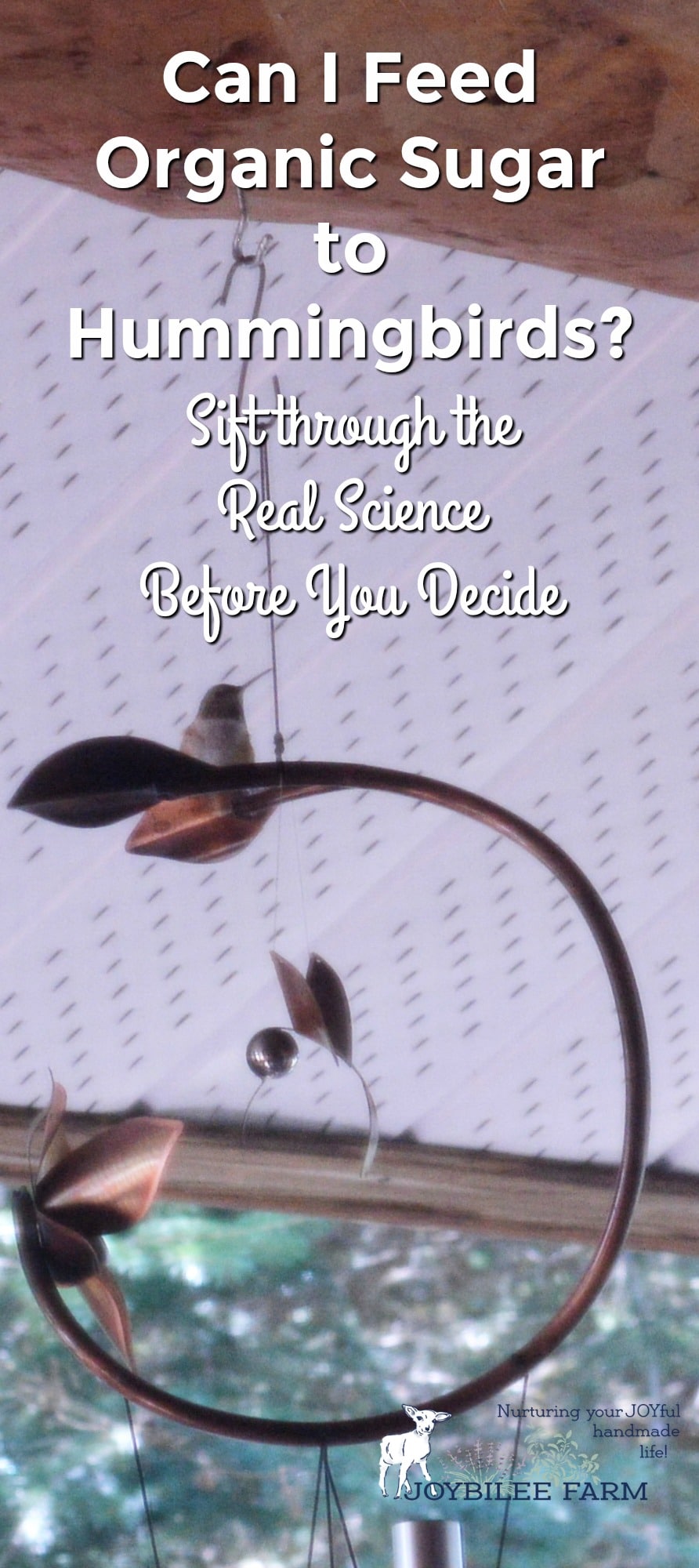
A single report not a scientific experiment
These fears are based on a single report in 2003, based on an Arizona zoo that had a mass die-off of 25 hummingbirds in a 5 month period. For 13 years until this die off, the zoo had successfully maintained hummingbirds on a diet consisting of a manufactured nectar supplement which reportedly contained 40 mg/kg iron.
A necropsy was done on the birds in the University of Arizona Veterinary Diagnostic Laboratory. It was inconclusive however, it was noted that the birds had high amounts of iron in the cells of their livers, although there was no evidence of liver pathology in the report. An analysis was done on the artificial nectar powder provided to the hummingbirds in captivity. The nectar supplement was found to contain up to 886 mg/kg of iron (dry weight). The iron listed on the package was 40 mg/kg and this was added in the form of iron sulphate to the nectar feed by the manufacturer. The captive hummingbirds’ diet consisted solely of this supplement nectar and fruit flies.
Subsequently, the zoo reevaluated the diet that they fed their captive hummingbirds to reduce the amount of iron to 20 mg/ kg in the dry nectar powder. No additional pathology has been reported.
This report led to the conclusion that one (unnamed) manufacturer understated the actual amount of iron in their sugar nectar supplement for hummingbirds which presumably led to the death of 25 captive hummingbirds in a 5 month period. Read the report for yourself and see what conclusions you would draw.
There is no way to scientifically move from this study to any recommendation for avoiding organic white sugar. Further, no study has ever been done comparing the results of feeding regular granulated cane sugar to feeding organic white sugar in wild hummingbirds. Nor has a study been done comparing the feeding of GMO sugar beet sugar to organic cane sugar. The recommendations to avoid all organic sugar in favour of nonorganic in hummingbird feed seems unsubstantiated with science.
One would assume then that provided that the sugar used in preparing your hummingbird nectar has less than 20 mg/kg of iron, dry weight, the sugar would be safe for hummingbirds when made into the 1:4 hummingbird nectar supplement commonly used. This zoo fed a nectar supplement that contained 40 mg/kg dry weight for 13 years and was able to rear hummingbirds successfully in captivity, so the 20 mg/kg is a reasonable limit. But there is one other variable that needs to be looked at when choosing which sugar is best for supplemental feeding of wild hummingbirds.
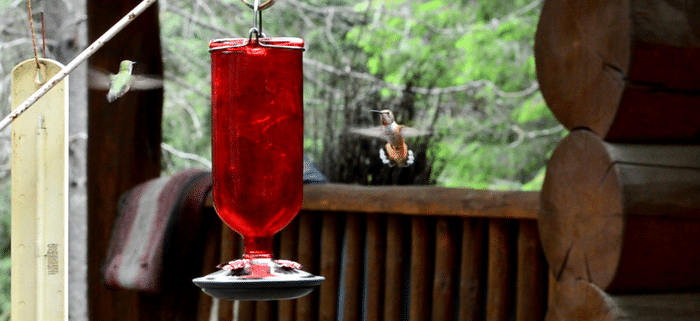
Is it glucose, sucrose, or fructose?
Sucrose is the chemical sugar that is obtained from sugar cane or sugar beets. When metabolized in the human body it breaks down into its building blocks of glucose and fructose. Presumably, the nectar of the flowers favoured by hummingbirds also contain sugar in its sucrose form. Sucrose is the preferred form of sugar consumed by hummingbirds, so when choosing a supplement, it’s good to give them what they want. Feeding hummingbirds supplemental nectar using fructose or glucose won’t harm the hummingbirds but it isn’t their preferred diet. Hummers fed alternative sugars may ignore the offered nectar and seek out wild sources of food.
Wild sources of nectar including red flowers contain varying amounts of glucose, sucrose, or fructose, depending on the flower. Their nectar also contains other beneficial antioxidants and flavonoids that keep hummingbirds healthy. So if you have room, create a hummingbird habitat along with providing them with supplemental nectar.
There’s a lot of variables in choosing the best form of sugar to feed your wild hummingbirds so I created this chart to make your decision easier.
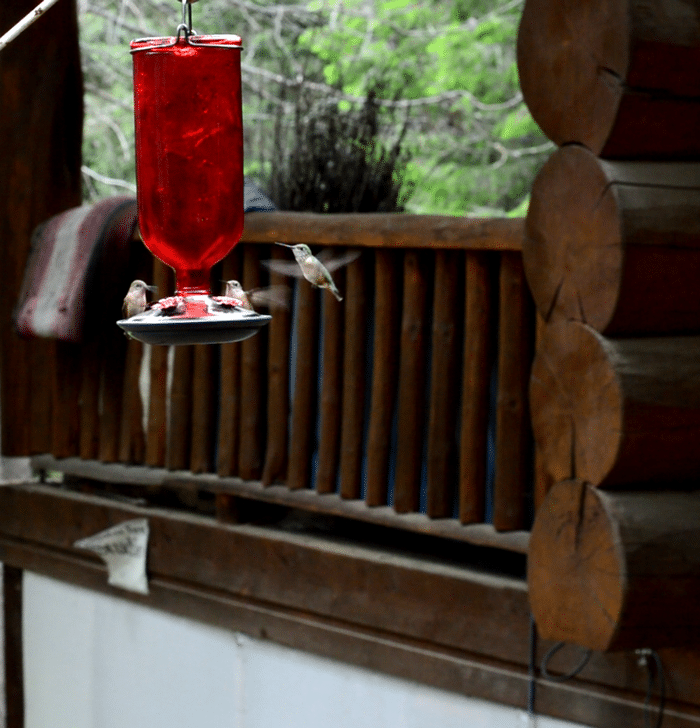
The Iron content of different forms of sugar
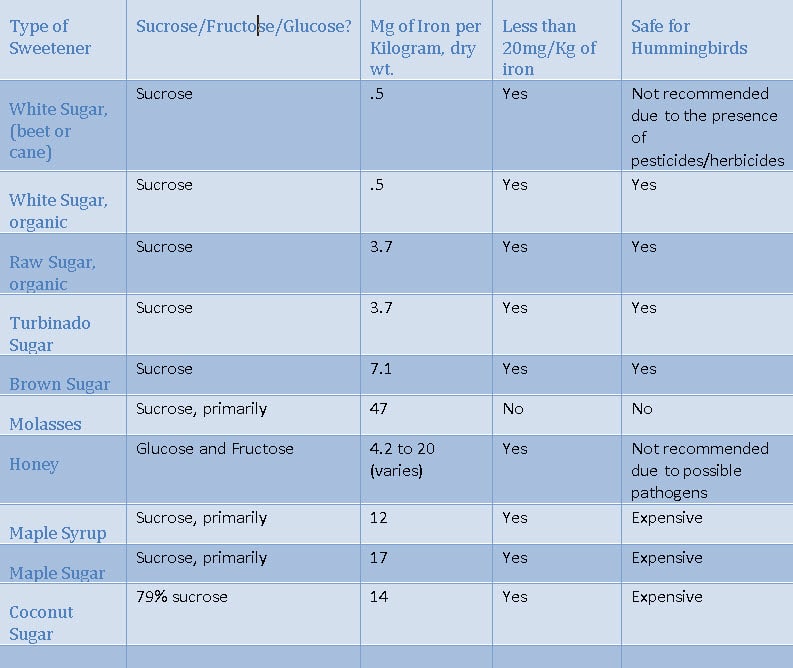
(Data from USDA National Nutrient Database for Standard Reference, Release 28)
While maple syrup and maple sugar are not usual sources of nectar for hummingbirds, there is no problem with using them in your hummingbird feeder if that’s the only sugar you have. Researchers have used maple syrup as hummingbird nectar in experiments with good results. However, these are expensive supplements so they aren’t normally used as hummingbird nectar.
Digging a little deeper into this fear of organic sugar by the “experts”
Wild hummingbirds are exposed to wild sources of food which modulate iron metabolism, making it unlikely that wild hummingbirds would suffer from the same pathology as the captive hummingbirds in the report. In fact, one dominant source of the wild hummingbird diet is incredibly high in iron. But no one suggests preventing hummingbirds from this prolific food source. What is that food source? Mosquitoes!
80% of the hummingbird diet consists of insects, spiders, mosquitoes, gnats, flies, beetles, caterpillars, and bees. Dr. Doug Tallamy, Professor and Chair of the Department of Entomology and Wildlife Ecology at the University of Delaware in Newark, says:
“Hummingbirds like and need nectar but 80 percent of their diet is insects and spiders. If you don’t have those insects and spiders in your yard, it doesn’t matter how many hummingbird feeders you have, you are not going to be able to support hummingbirds.”
Hummingbirds also gather nectar from other nectar sources — flowers, tree sap, and tree catkins. Given these other sources of wild nectar, your hummingbird feeder is less than 20 % of the wild hummingbird’s diet. Rest assured that organic white sugar is perfectly safe to use as a wild hummingbird nectar supplement. And so are many other forms of sugar you might have in your cupboard.
If you are in Mexico or another country where it is difficult to find white cane sugar, use the raw sugar you can easily get. Your hummingbird feeder is not the sole diet of the wild hummingbirds that visit your feeder. Contrary to the internet myth, using a little turbinado sugar (3.7 mg./ kg of iron) will not harm the wild hummingbirds coming to your feeder.
Learn more about using herbs for health and wellness from my Book
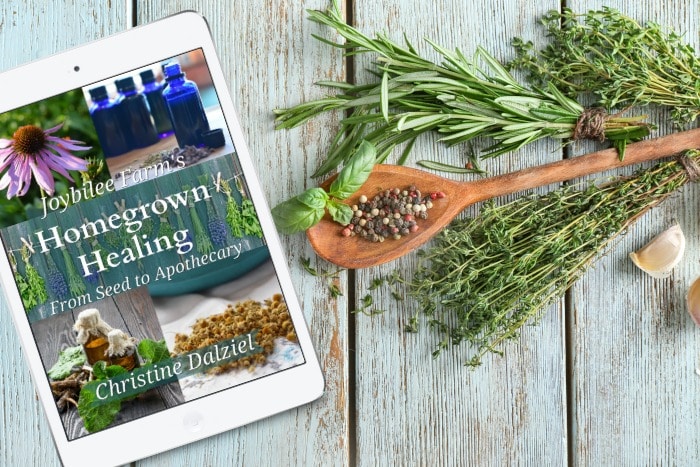
Homegrown Healing From Seed to Apothecary
My book Homegrown Healing From Seed to Apothecary will help you grow healing herbs in your own garden. Focusing on the easiest plants for beginners to grow, Homegrown Healing From Seed to Apothecary covers 30 plants, recommended by professional herbalists, that can be grown in the temperate zone. Initial garden preparation, garden design and harvesting tips lead the novice herbalist into early success. Choose which herbs to grow, learn how to use these herbs for your family’s health and wellness using the guidance in my book. You can find out more about this useful guide to growing more herbs and using them strategically here.
Reference:
Frederick H, Dierenfeld E, Irlbeck N, Dial S. 2003. Analysis of nectar replacement products and a case of iron toxicosis in hummingbirds. In Ward A, Brooks M, Maslanka M, Eds. Proceedings of the Fifth Conference on Zoo and Wildlife Nutrition, AZA Nutrition Advisory Group, Minneapolis, MN.
PEAKER, M. (1990), Nutritional requirements and diets for hummingbirds and sunbirds. International Zoo Yearbook, 29: 109-118. doi:10.1111/j.1748-1090.1990.tb03339.x
Suarez RK, Welch KC. Sugar Metabolism in Hummingbirds and Nectar Bats. Nutrients. 2017;9(7):743. doi:10.3390/nu9070743.
Rio, Carlos. (1990). Sugar Preferences in Hummingbirds: The Influence of Subtle Chemical Differences on Food Choice. The Condor. 92. 1022. 10.2307/1368738.




I appreciate this resource! We had some raw organic sugar from Trader Joe’s that seemed unusually brown and I wasn’t sure if it would be safe to make nectar with. I appreciate this info.
Hi. I have a question. I recently bought some organic panela whole-cane sugar. Is this safe to use in hummingbird nectar?
Also, apparently the best ratio for homemade hummingbird nectar is one part sugar to *three* parts water, as discussed here:
https://thegrownetwork.com/hummingbird-sugar-water-ratio/
Thank you for your research in organic sugar for hummingbirds. I’m thrilled someone isn’t caught up with the crowd and proclaiming regular sugar only for hummingbirds… I understand that the sugar should not be raw organic, but white organic is fine:) bird’s love me too:)
In hot climates, bacterial growth in your feeders is a big problem. You need to clean your feeders every day no matter what sweetener you put in them.
Thank you so much! We have hummingbird feeder’s & many flowers planted especially for our pollinators, our yard has become a sanctuary! Recently I came across a comment thread of several people berating a few individuals asking about using organic sugar, I was saddened by the amount of “meanness” & bullying, only for asking questions. This to me seemed unreal as I have always found people within these communities nothing but kind & always willing to help & educate others. I personally looked into this, we do not have anything but organic, I have autoimmune & intestinal illnesses & have to be extremely careful about EVERYTHING that I put into my body. What astonished me the most was not one person provided ANY EVIDENCE of harm to the hummers, only pics w/instructions on them, no links or articles or even organizations citing this.
I refuse to engage with people online or in person who result to personally attacking others rather than civil conversation as I have found generally i end up with more anxiety. But I’m going to post this in my gardening group, and on my Pinterest. We ABSOLUTELY need more good information with the WHY, WHAT AND WHERE did this come from, aka the science! So people can make good decisions & keep our hummers & all wildlife (ourselves too!) healthy & happy. I so much appreciate all the information, thank you again!